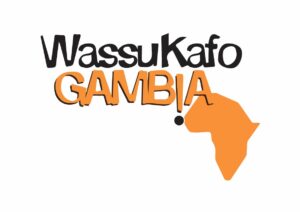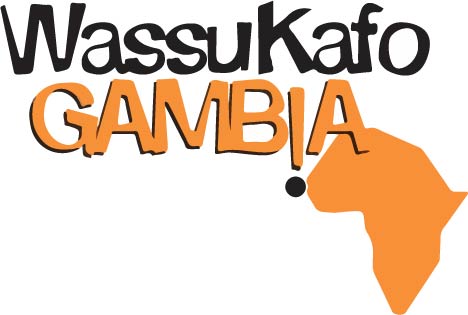Success stories
- Home
- Success stories
- Village healthcare professional - The Gambia
This 65-year-old worker has been a village health worker (VHW) in The Gambia for four years, has received training from the ministry of health and participates in health care-based programs in his community.
According to him, he had never received training on FGM before his first training with WGK in February 2020. He believes that the practice of FGM is reducing as he has not heard of any cases over the past three years. Even though the community is a Mandinka community (the largest practicing ethnic group), the practice has virtually disappeared, “perhaps they are aware of the health complications the practice causes,” he said.
He is in favor of the law prohibiting FGM, he said: "I support the law prohibiting the practice of FGM because I think it has complications, so it should be stopped". He believes men have a role to play in decision-making.
- Community leader - The Gambia
He comments that he fully supports the carrying out of FGM, since it is an old tradition and he believes that it is part of religion for him. "Yes, the prophet advised that both men and women undergo circumcision." This was what he said when asked if FGM was mandatory by Islam. She believes that it is a good practice and that it does not harm women's health. He said: “They said it's not good and it also hurts a woman, but they didn't tell us how it hurts a woman. And we have been with our women and other women, but we have never seen any problems related to the practice of FGM." He believes that, if a woman has not gone through FGM, it is difficult to satisfy her sexually, so performing the practice will reduce promiscuity among women.
- PG Community Nurse - The Gambia
"This training is good. It has really changed my life because before I had a different concept of Female Genital Mutilation (FGM). Before, when I heard someone say that FGM was not good, I told them that I didn't know what they talked about because it is our culture and we found our people doing it. I used to confront those people and tell them that the practice was good. However, later when Wassu Gambia Kafo came to train us, I knew that the concept I had about FGM does not coincide with what is happening. What I have learned here has changed my life because I was a victim, as I told here in class. I was circumcised when I was nine years old, at that time I was in second grade, but when they took me away I was not They informed me. In the morning they told me "we are going to give you bananas, today you will have a lot of bananas." So I was happy, I told my friends that we were going to eat a lot of bananas. Then we went and I found myself in a critical situation where I suffered a lot. It was horrible for me because the hemorrhage that they have talked about here... that day I bled, I bled a lot. They tried to help me control the bleeding, but it was really a bad day for me. This training has changed me a lot, I have learned a lot from these complications. Since I am a community nurse and I am close to the community, what I plan to do now is, when I return, I will try to sensitize my people, especially my traditional midwives and health workers in the villages. I will sensitize them and the influential people in the villages. I will talk to them and explain the negative impact of FGM. I am very proud of Wassu Gambia Kafo, because you are helping the nation. You are not helping the individual health professional, but the nation, because by training health personnel you are training the entire nation. We, health professionals, are the ones who work with the community, so if you train us we can go to the communities, express ourselves and return this information. I am happy because you are changing our lives. What we thought before and what we are seeing now is different. So definitely, Wassu Gambia Kafo, thank you very much."
- M.B: midwife and community "circumciser" - The Gambia
"Today, if circumcision was on someone's mind, that person has changed and the person who was thinking of circumcising his daughter has stopped, and why? Because of the information that Wassu Kafo Gambia gave to the people of our country that has given us delighted, since it is for our future and the future of our leaders. I value her, as do many other people like me who are here. And if God accompanies me back to Jokadou Dassilami, as I am the wife of Alkhalo's little brother (village chief), I will make sure to disseminate this information in Dassilami.
And from now on if someone wants to circumcise their daughter, they will have to look for a 'circumciser' somewhere else, because I, my hands, will never do that job again".
- K.C: Alkhalo (village chief) - The Gambia
"I really like this meeting on Female Genital Mutilation (FGM). We must critically analyze it and listen carefully to your advice to prevent its complications. I am a living witness of them, of my own daughter after being circumcised. She went two days without urinating and My wife and I forced her to urinate by opening her legs, but she closed them for fear of the pain. If you see that all this happens, it is because of ignorance about the consequences of FGM and today you have come to clarify them. Now we realize that What we used to do and practice as part of our culture has consequences, so we should stop the practice. Before I didn't know the consequences but now I do and I will be the first among those whose daughters will not be circumcised because I have already seen the consequences. Prevention is better than cure, we should promote dialogue because we, Alkhalos, always attend meetings in different places. It is sensible to involve people in this and for women to promise to start talking about it during meetings, local celebrations and ceremonies in a friendly way. My role will be to stand firm and make sure that the people in my town and neighboring towns are informed, since you cannot conduct training in all of these towns. "Then it will be our responsibility to raise awareness about everything that FGM entails, as well as its benefits, which consist of the transfer of knowledge, songs and dances, but the cutting must be stopped as it causes complications".
- Woman 24 years old, Gambian parents - Spain
Following a trip she made to Gambia to see her family, she became interested in the topic of FGM and ended up doing her Final Degree Project on it. This happened when the daughter of a friend of hers was mutilated: “When I went to Gambia and my friend told me this and then after the mutilation I was with the girl and I saw that the girl was really bad, that she was crying, that she had no medication… She had to ask me… to ask if she had anything for the illness, because I had a fever and so on… It was like “wow, wow, wow… What is happening? What's going on?".
From her point of view, the practice is slowly being abandoned by migrant families residing in Spain, as in her case, in which neither she nor her sisters are mutilated. She highlights the lack of prevention in health services, highlighting the fact that no professional has ever discussed this issue with her or her mother, even though they come from a country with a very high rate of FGM.
On the other hand, he explains that in Gambia the practice is still very rooted. Personally, he believes that the taboo that exists regarding this topic must be broken, in order to be able to speak normally in the consultation, although some families are a little reticent. Applying it to her personal experience, she acknowledges that she has tried to talk to her mother about the issue, but her attitude was closed and she did not want to force the situation further.
- Midwife, 41 years old - Spain
Esta comadrona reconoce que a lo largo de los 12 años que lleva trabajando, todas las mujeres que ha visitado procedentes de países de África subsahariana, tienen practicada la MGF: “Todas, o sea ahora habrá otra generación de estas mujeres que han tenido esas hijas que a lo mejor ahora tengan, no sé, 9 o 10 años, que estas niñas no están mutiladas. Pero todas las mujeres que yo he visitado, tienen practicada la mutilación y en diferentes grados”.
Esta experiencia le ha permitido crear vínculos de confianza con las mujeres a las que atiende, por lo que considera que es más fácil abordar el tema con las comadronas que, según comentaba, muestran una actitud un poco más abierta hacia la diversidad cultural, que otros profesionales de la salud que en ocasiones muestran una actitud más cerrada “[Hablando del abordaje de la MGF] si en algún momento ella lo quiere hablar o lo quiere tal, que tiene que venir por nosotras, por las comadronas, eso sí que lo dejamos muy claro. Para dejar un poco, pues eso, el circuito, un poquito que sepa que puede acudir”.
Esta diferencia de posturas en cuanto a la facilidad de tratar ciertos temas sobre los colectivos migrantes, le ha llevado a detectar que muchos de los profesionales de la salud tienen prejuicios hacia la práctica y muchos culpabilizan a las mujeres. Para revertir esta situación ella reivindica la necesidad de realizar formaciones de forma sistemática y en profundidad a todos los profesionales. “Hay mucha penalización y hay mucha estigmatización porque no entienden, o sea el desconocimiento de la cultura de los otros es lo que provoca esta ignorancia de los demás, es lo que provoca culpar a la mujer, cuando realmente es el sistema”.
From her point of view, the practice is slowly being abandoned by migrant families residing in Spain, as in her case, in which neither she nor her sisters are mutilated. She highlights the lack of prevention in health services, highlighting the fact that no professional has ever discussed this issue with her or her mother, even though they come from a country with a very high rate of FGM.
On the other hand, he explains that in Gambia the practice is still very rooted. Personally, he believes that the taboo that exists regarding this topic must be broken, in order to be able to speak normally in the consultation, although some families are a little reticent. Applying it to her personal experience, she acknowledges that she has tried to talk to her mother about the issue, but her attitude was closed and she did not want to force the situation further.
We are

WASSU GAMBIA KAFO (WGK) is a Non-Governmental Organization based in The Gambia that aims to promote development and cooperation in sexual and reproductive health and rights, through research and knowledge transfer, especially to promote gender equality and prevention of harmful traditional practices.

